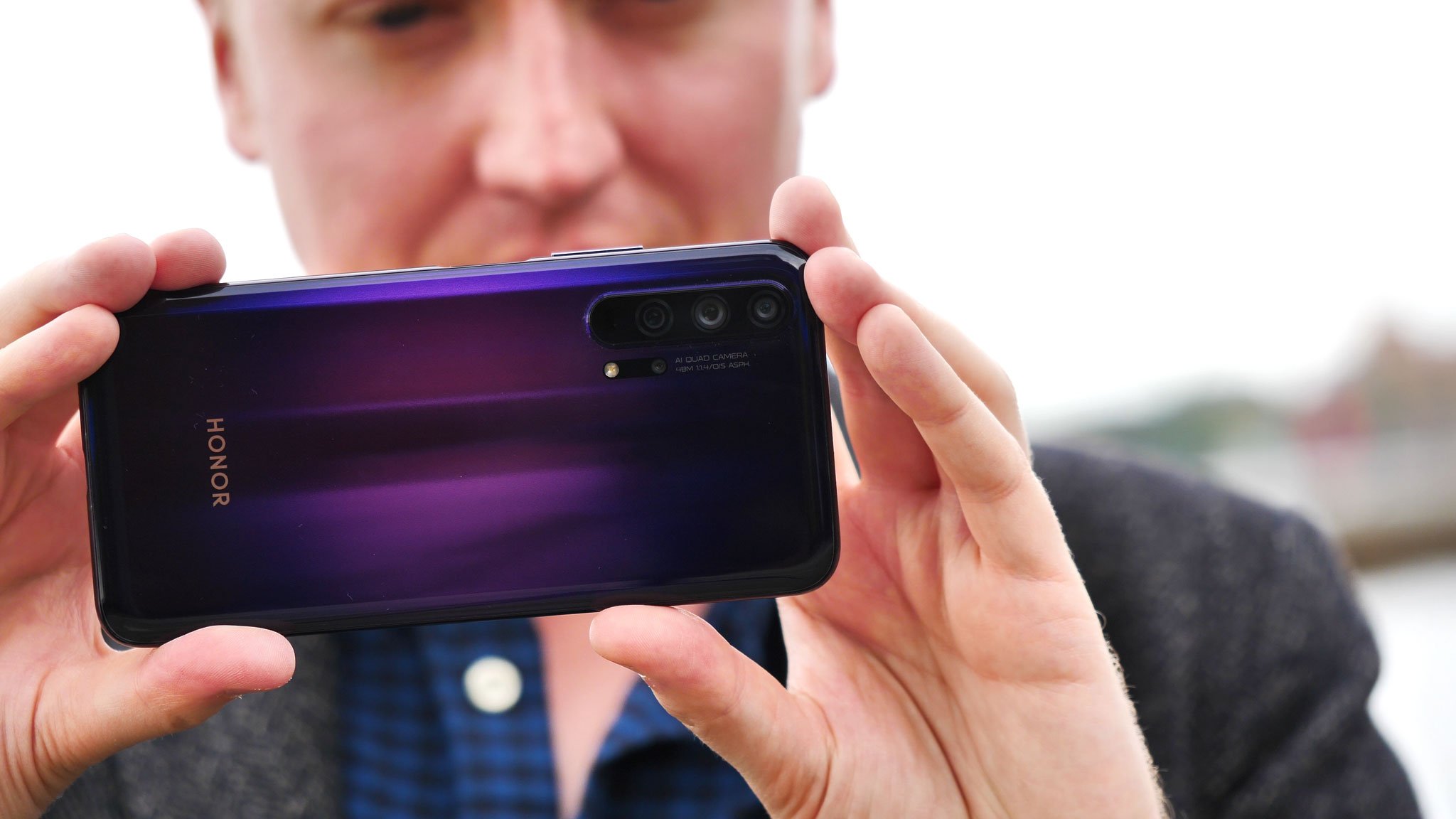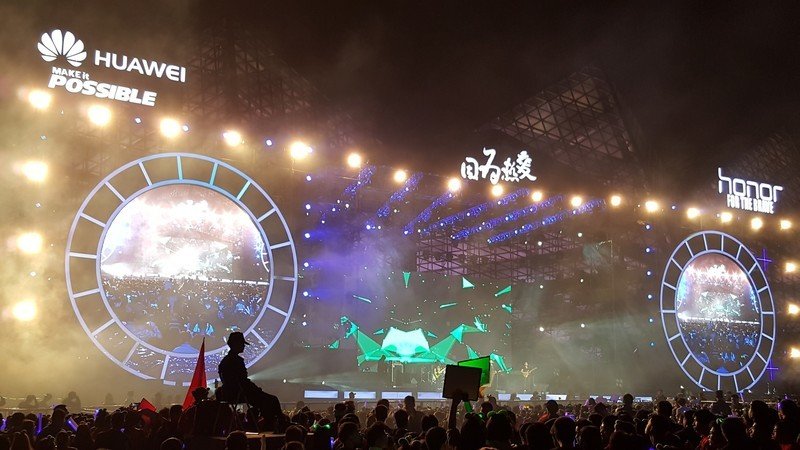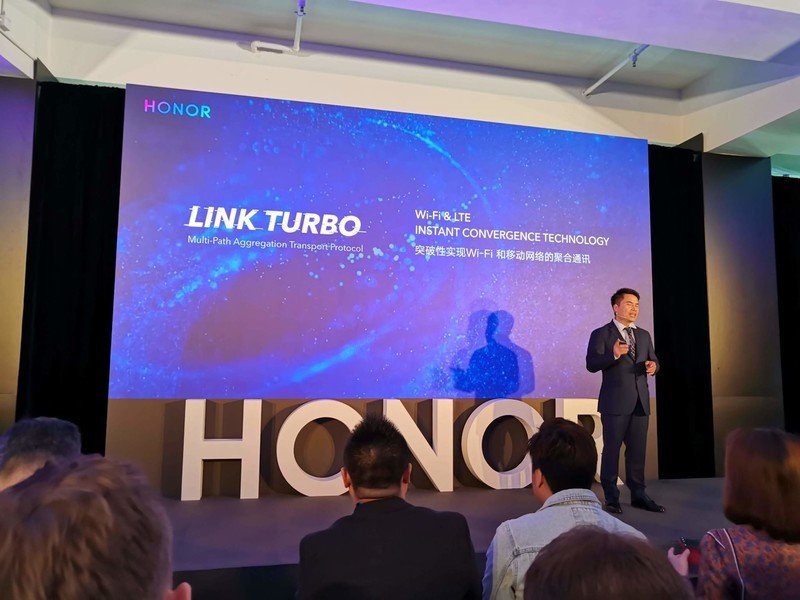From the Editor's Desk: Honor without Huawei

The latest development in the geopolitical kerfuffle between the US government and Huawei is the sale of Honor. Honor, which has made of some of the best mid-range Android phones, used to be a separate brand, but very much part of Huawei. Now, it's not.
So what does that mean? Will future Honor phones now be able to use Google services? What about existing phones like the Honor 20 Pro? Well, for the moment, there's no single, clear answer. But we can dig into a few possibilities.
This most recent news about Honor being sold follows the Honor brand itself being spun off into a separate legal entity back in April. The new company, Honor Terminal, was presumably created to make it easier to detach from Huawei once it found a buyer.
That buyer is Shenzhen Zhixin New Information Technology Company, a new organization jointly set up by various Chinese state-owned holding companies in partnership with Honor dealers in China. Hasn't been confirmed how much money changed hands, but reports put the figure around $15 billion.
That means that post-Huawexit, former parent company Huawei will no longer hold any shares in Honor Terminal. Which you'd think should mean Honor's phones would be free from the restrictions currently crippling Huawei's smartphone business because Huawei is on the US's Commerce Department's Entity List.
Those restrictions mean that, among other things, Huawei can't use Google services on its phones. This is a problem because a lot of people in the West view an Android phone without GMS as being severely disadvantaged at best, and at worst a paperweight.
So what about the prospects for the new Honor? Well, I'm not a lawyer, and we are about to get into speculative territory here.
Be an expert in 5 minutes
Get the latest news from Android Central, your trusted companion in the world of Android

Honor now needs to recreate everything Huawei used to do for it — and that's a lot.
The answer likely depends on to what extent it's disentangled itself from Huawei. Because although Huawei might not own Honor anymore, up until now, Huawei has designed and manufactured every Honor smartphone. They're designed by the same people who handle the P and Mate series phones for Huawei, they come out of Huawei factories in Huawei boxes, and Huawei handles after-sales support.
Presumably, if there's still a commercial relationship between Huawei and Honor, then the US would take issue with that, especially if it involved what it viewed as US technology, which includes Google services. (And especially since this new parent company is very openly funded in part by the Chinese state.) That would make updating old Honor phones with GMS under this new company pretty tricky, to the point where Honor might just want to start afresh.
We've asked Honor for comment on all these issues and they haven't been able to give us anything just yet. It's early days, after all. But if you asked me if this sale would suddenly fix everything for existing Honor phones and allow all of them to magically get Google services again, my answer would be: probably no.
If Honor wants to start over for future phones — and, really, it needs to do that if it wants to sell those phones in the West — then it needs to recreate by itself all the things Huawei was doing for it previously. So we're talking designers, R&D, supply chains, and manufacturing, just to start. Already being in Shenzhen — the smartphone manufacturing capital of the world — and having all of Honor's employees onboard makes that easier for Honor than your average new smartphone startup. But it's still a big challenge, especially when you're looking at things like customer support and repairs in many countries around the world.

Huawei currently gives Honor phones its technical secret sauce.
There's also the more fundamental question of what Honor even is without Huawei. The Huawei technology was a lot of the secret sauce for Honor phones. So without Kirin processors and Huawei's networking know-how, Honor is basically in the same position as Realme or OnePlus. Sure, Honor has its brand and its people, but they'll be using the same off-the-shelf components as everyone else — and in a lot of other respects, they'll be starting from scratch. Think software, for instance. A year from now, I wouldn't expect the current Magic UI — basically a fork of EMUI — to look anything like it does now. Possibly, it might have to be rebuilt from the ground up using open-source Android.
So let's assume Honor does all of the above and is able to hire manufacturing capacity from, say, Foxconn or some other ODM. The company should, in the future, be able to sell new phones with Google services in the West.
The other possibility is Honor stays more closely connected to Huawei, and new phones instead ship with more familiar software and Huawei Mobile Services. I think that's very unlikely, especially in light of recent remarks by Huawei founder Ren Zhengfei that made the sale seem like a clean break.
Software aside, a big benefit for the newly independent Honor will be access to silicon.
Because of its place on the US entity list, Huawei is restricted from doing business with TSMC, the Taiwanese firm which manufactures its Kirin processors. Huawei can now buy Snapdragon chips from Qualcomm, according to a license that was recently granted, but only 4G chips. That means you're looking, at best, at an almost year-old Snapdragon 865, assuming Qualcomm will sell that without its off-die 5G modem. If not, they'd be looking at an 855, which is almost two years old.
When is it an Honor phone, and when is it a Huawei phone?
Enormous challenges remain for Huawei, and I wouldn't expect that situation to change quickly, even with an imminent Biden presidency. As far as Honor is concerned, going forward, if they're sufficiently disconnected from Huawei, then they could absolutely build new phones with Google services and 5G Qualcomm chips like anyone else.
What happens with the Honor back catalog is a trickier question to tackle. If a phone came out of a Huawei factory and has "Huawei Device Co. Ltd." printed next to its regulatory info, will the new Honor be able to support it without incurring the wrath of the U.S.?
The answer to that question is probably being hashed out somewhere in Shenzhen right now, and it's going to be fascinating to see what, if any solution the new owners of Honor come up with.

Alex was with Android Central for over a decade, producing written and video content for the site, and served as global Executive Editor from 2016 to 2022.
